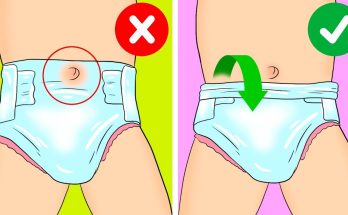Helping a baby fall asleep peacefully is one of the top priorities for any parent, especially during the early months. One of the most effective and gentle tools parents can use is soft sleep music. Playing relaxing music for your baby at bedtime can help create a calm, predictable, and soothing sleep environment, which is essential for developing healthy sleep habits. An extended track, like 8 hours of super relaxing baby music, is especially beneficial because it can play through the entire night without interruptions, promoting longer and deeper sleep.
Why Soft Music Helps Babies Sleep
Babies are highly sensitive to their environment. Sounds, lights, and movements can either soothe or stimulate them. Music has a unique way of calming the nervous system. For babies, soft melodies and slow rhythms mimic the comforting sounds they heard in the womb—like a mother’s heartbeat or gentle whooshing sounds. These familiar auditory cues can help ease your baby into a state of relaxation and signal that it’s time to rest.
The right kind of music can reduce anxiety, quiet the mind, and help babies transition from wakefulness to sleep. It also helps mask background noises that might otherwise startle a baby awake, such as household chatter, traffic, or pets.
The Power of 8-Hour Music Tracks
Consistency is key when it comes to helping babies sleep. An 8-hour track of relaxing baby music plays continuously throughout the night, which serves several purposes:
-
Promotes Continuous Sleep: If your baby wakes up briefly, the familiar sound of the music can help them self-soothe and fall back asleep.
-
Eliminates the Need for Manual Restarting: Parents don’t have to worry about restarting music in the middle of the night or switching playlists.
-
Creates a Predictable Routine: Over time, babies begin to associate the specific music with sleep, which helps signal bedtime and builds healthy sleep habits.
Ideal Characteristics of Sleep Music for Babies
Not all music is created equal when it comes to promoting sleep. The most effective baby sleep music has a few key features:
-
Slow Tempo: Music with a slow rhythm (typically 60–80 beats per minute) helps slow the heart rate and breathing, encouraging the body to relax.
-
Soft Instruments: Lullabies, piano, harp, or ambient nature sounds like gentle rain or waves are excellent choices. These sounds are calming and non-intrusive.
-
No Sudden Changes: The music should be smooth and consistent, with no abrupt volume shifts or harsh sounds that could startle a sleeping baby.
-
Instrumental Over Lyrics: Instrumental music tends to be more soothing for babies. Lyrics might draw attention and distract from sleep.
Establishing a Bedtime Routine with Music
Integrating relaxing baby music into your bedtime routine can make the entire process smoother and more enjoyable. Here’s how to do it:
-
Start Early: Begin playing the music about 15–30 minutes before your desired bedtime. This signals to your baby that sleep time is approaching.
-
Combine with Other Sleep Cues: Use the music alongside other calming activities like a warm bath, a gentle massage, or quiet cuddle time.
-
Keep the Environment Calm: Dim the lights, reduce noise, and ensure the sleep space is cozy and safe.
-
Be Consistent: Play the same track or playlist every night. Familiarity builds comfort and routine.
Benefits for Parents, Too
Relaxing baby music doesn’t just benefit your little one—it can help parents wind down as well. Many parents find the gentle tunes comforting and peaceful, helping them release the stress of the day. It can also make nighttime feedings or diaper changes more calming and less disruptive, keeping the entire household in a more relaxed state.
Tips for Using Sleep Music Safely
While using music at bedtime can be helpful, it’s important to use it safely and appropriately:
-
Play Music at a Low Volume: Keep the volume soft, around 50 decibels or lower (about the sound level of a quiet conversation).
-
Use Safe Devices: Choose high-quality, safe music devices. Avoid placing speakers or devices in the crib or too close to your baby’s ears.
-
Monitor Reactions: Watch how your baby responds to the music. If it seems to overstimulate rather than soothe, consider trying a different style or turning it off altogether.
Final Thoughts
Using 8 hours of super relaxing baby music is a gentle, effective way to support better sleep for your baby. It can transform bedtime from a stressful experience into a peaceful, soothing routine. With consistency and the right setup, soft sleep music can make bedtime a breeze—for both babies and their parents. Whether you’re dealing with a fussy newborn or helping your toddler wind down, calming music can become one of your most valuable bedtime tools.



